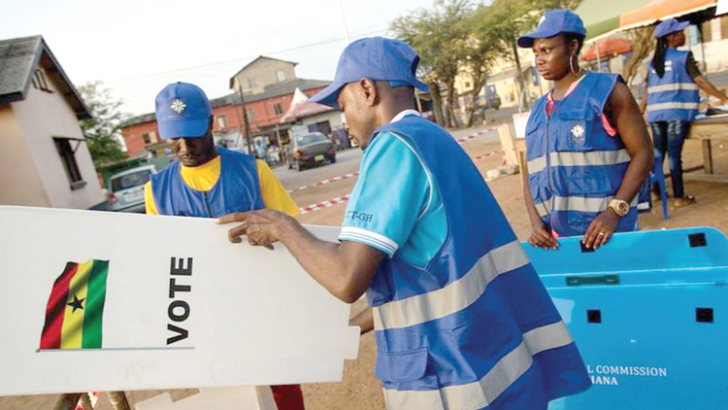
The Democracy Project
Democracy is preferable to any other form of government,” most Ghanaians (77 per cent) say. Yet, only 51 per cent express satisfaction with “the way democracy works in the country.
Advertisement
” Also, 33 per cent describe the country as a “democracy, but with major problems.” This is all according to the most recent round (2022) of the Afrobarometer survey. Keep in mind that satisfaction with democracy has significantly declined from the high 80 per cent expressed in Round 4, 2008 of the same survey.The former chair of the Electoral Commission, Dr Afari-Gyan, said this in his Constitution Day remarks – “there are clear signs of deconsolidation of our democracy. Over the years, we have become poorer as a nation and as a people due mainly to pervasive corruption, particularly in the public sector. Unfortunately, some of our key institutions are becoming institutions of dubious integrity. Increasingly, candidates who lose elections are alleging manipulation and refusing to accept the results. By and large, we have not been able to defuse the principles of democratic behaviour widely into our society.”
Yet, I have often argued and continue to do so at every opportunity that Ghanaians have made their peace with democracy. I do concede though that my research, using data from the Afrobarometer survey, documents well key challenges as Ghana marches towards democratic consolidation.
Safeguarding our peace with democracy
Last year, after publishing my book titled “5Presidents, 8Elections, 30Years Later: How Ghanaians See Their Democracy,” I became interested in using the findings of the book to shape public discourse about the state of Ghana’s democracy. In addition, I was interested in how the findings could lead to specific actions by all stakeholders. After all, we must all contribute to safeguarding our peace with democracy and ensure that the march towards democratic consolidation succeeds.
In November, thanks to a grant from the West Africa Democracy Solidarity Network (WADEMOS), I launched The West Africa Governance Risk Assessment – Identifying & Addressing Signs of Retrogression initiative under the umbrella of The Democracy Project. I initially designed the initiative as an activity with a sole focus on Ghana but was strongly encouraged to think broadly (West Africa) about the project starting with a pilot in Ghana.
There are three core activities at the heart of this initiative – a) the democracy dialogues – conversations focusing on the experiences of Ghanaians under the Fourth Republic as a way of reinforcing the critical role of civic engagement and social capital in democratic consolidation; b) the democracy pledge – a bold attempt to get stakeholders to make specific commitments concerning the various challenges we face and c) the development of democracy risk profiles that allow stakeholders to design interventions in response to identified risks.
The work so far and next steps
The shared nature of our experiences struck me after holding the first three democracy dialogues last November. The Centre for Gender Research and Documentation (CEGRAD) at the University of Cape Coast hosted the inaugural dialogue, allowing the project to examine the challenges to consolidation from a gender perspective. Care for Deprived Communities (CDC) in Tamale brought together several stakeholders for the second dialogue. By their work, they shaped the dialogue with this question – how do we include the marginalised in our democratic spaces? The John A Kufuor Foundation’s Young Scholars Programme hosted the third dialogue, bringing together a group of young vibrant students who helped shape the dialogue from the perspective of the youth.
The various conversations reaffirmed the challenges documented in my book but more important, showed how well the Afrobarometer survey captures the voices of citizens on matters of democracy and good governance.
The overall sentiment also struck me that our democracy will hold firm, even as participants expressed some pinch points but also proffered several solutions if implemented will allow us to continue our peace with democracy.
Another important emerging theme from these dialogues was the need for democracy to address the socio-economic needs of citizens. I have always said that in the end, the “bread and butter” issues matter greatly if citizens will proclaim satisfaction with “the way democracy works.”
The work ahead is exciting as the initiative prepares to engage an important stakeholder in our democracy - political parties. Given that we are in an election year, it is an opportune time to get them to make some firm commitments about Ghana’s democracy. Our work is to help shape what those commitments will look like.
The task of democratic consolidation is a daunting one, but we must all contribute our quota to ensure that it succeeds. One of the American founding fathers is quoted as having once said, “It is a Republic if you can keep it.”
It is truly up to us to keep the peace with democracy.




